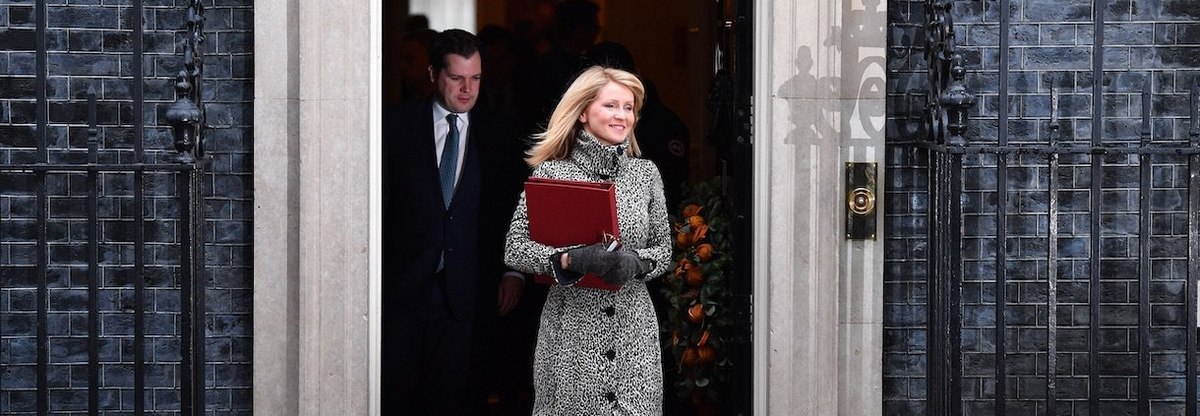At last it has happened. Thanks to Rishi Sunak’s cabinet reshuffle we now have a government minister who must surely speak for all of us. A minister who represents what you and I can believe in without fear or favour. A minister for common sense. Who could possibly object? Sadly the answer to that question is just about everyone. And there’s an obvious reason for that. We all have our own definition of what common sense means. What we can all agree on is that the new minister, Esther McVey, has one heck of a job on her hands.
Perhaps that’s because, as the American psychologist Dr Jim Taylor has noted in the magazine Psychology Today, common sense is neither common nor sensible. He defines it as "sound judgment derived from experience rather than study" and says it is one of the most revered qualities in America because it “evokes images of early and simpler times in which industrious men and women built our country into what it is today. People with common sense are seen as reasonable, down to earth, reliable, and practical.”
But as he points out there is a catch. A big one. If common sense really is “common” then most people would not make the kinds of decisions we do every day. We wouldn't buy stuff we can't afford or smoke cigarettes or drink too much alcohol or eat junk food. We wouldn't gamble. The reality is there are endless things that we know are harmful to us in one way or another but we do them anyway.
The problem is that relying on our experience alone does not usually provide us with enough “information” to reach sensible or even logical conclusions. Surely it depends on how broad or narrow that experience is. My own parents, for example, had views about people of other racial backgrounds because they never met them. We lived in an area of Cardiff where all our neighbours were just like us: poor and white.
What I do remember is my father coming back from the pub one night in an unusually animated mood because one of the regulars had taken a workmate in with him. The workmate was black. I can also remember my father boasting that he had shaken the man’s hand. He was very proud of himself. Until that moment my father’s experience — his “common sense” — had told him that the colour of some people’s skin made them different from “ordinary” people. He was not alone in that.
As Dr Taylor writes, we cannot define sense as being sound judgment based on experience alone because often we don’t have enough information to draw reliable conclusions. He believes it is a contradiction in terms or, as he puts it, real sense can “rarely be derived from experience alone because most people's experiences are limited.”
He goes further: “So-called common sense is a fallacy that has been foisted on us by our culture of ideology (any ideology that wants to tell us what we should think and do) that prefers us to be stupid, ill-informed, and poor decision-makers. In the United States common sense is “even used as an ideological cudgel by conservatives in which so-called coastal elites lack sense and, as a result, are out of touch with ‘real Americans’ who apparently have an abundance of common sense.”
But surely if a view is held by a majority of people, that view should be described as common sense because it is based on their own judgement? This is where it gets a bit complicated. The unfortunate reality, says Taylor, is that “trusting common sense” in point of fact, causes us to make poor rather than sound judgments. Perhaps the biggest problem is that it falls prey to the clear limits of personal experience. Or, we don't even have any actual experience in the matter and rely simply on what we believe to be true or have been told is true.
He offers this as an example. When we are having a discussion about just about anything that requires taking a stand — for example, the weather, the economy, raising children, sports, what have you — how often do we hear some variation of ‘It's been my experience that [fill in the blank]’ and the person then draws a conclusion based on said experience? And how often is that conclusion wildly at odds with the facts?”
So how does all this relate to the responsibilities resting on the shoulders of our new minister for common sense? After all, there’s nothing she can do to change human nature, is there?
The sceptical response to that is that she’s not really the “common sense” minister at all. She’s the “anti-woke” minister, they say, and she’s been given the job because Sunak recognises there are many votes in being anti-woke. Yet again, we have a problem with definitions. What exactly is “woke”?
It is a classic illustration of the “common sense” debate. McVey will have to tread carefully if she is to earn plaudits in her new role. Whose side are you on?
Do let me know.







